Stopping Iranian Nuclear Threat Remains Key Goal - Israeli PM
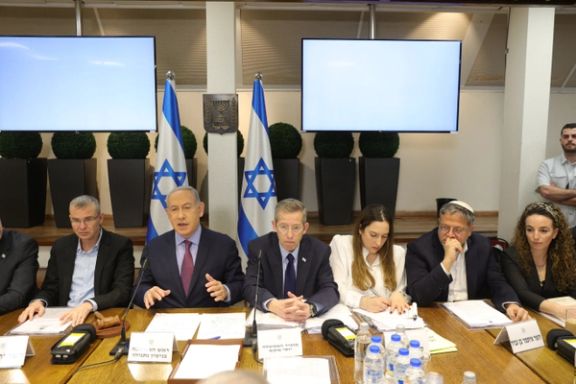
The Israeli prime minister declared his ongoing commitment to ensuring that Iran does not gain nuclear weapons amid the ongoing war in Gaza.

The Israeli prime minister declared his ongoing commitment to ensuring that Iran does not gain nuclear weapons amid the ongoing war in Gaza.
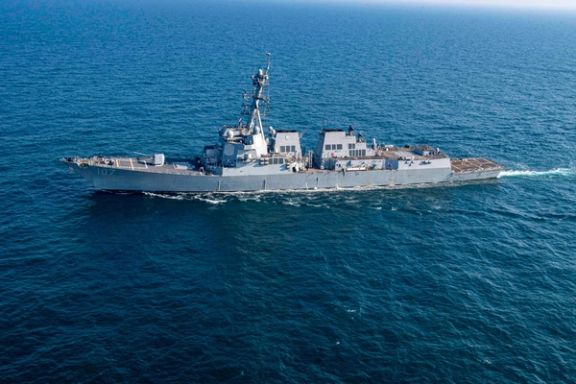
As Red Sea tensions rise, the US sank three Houthi boats on Sunday foiling a ship hijacking attempt, but Tehran vowed continued support for its militant proxies.
Two distress signals were sent out by the MAERSK Hangzhou within 24 hours, the first signalling a hit by a missile, and the second, indicating a hijacking attempt.
As the attack was unfolding, Iran’s Supreme Leader Ali Khamenei in Tehran said that the Islamic Republic should continue its support for the “Resistance Front”, referring to the regime’s proxy.
US Centcom said the attack marked the 23rd instance of aggression against international shipping since November 19.
With well over 100 attacks on US facilities in the Middle East since the Gaza war broke out on October 7, sparked by Hamas’s invasion of Israel, it is a rare action from the US which until now, has tried to avoid military clashes.
Following the Israeli military operation in Gaza, Iran’s Yemeni proxy announced it would be joining the war on Israel, targeting shipping in the Red Sea and surrounding area.
Attempting to force Israel to agree to a full ceasefire, missiles and drones have been targeting Israeli soil as well as international shipping and US interests. Following the US support of Israel’s right to defend itself in the wake of the October 7 attacks, which saw 1,200 mostly civilians murdered and 240 or more taken hostage, the US has come under further attacks in Iraq and Syria.
The escalation in the maritime route which accounts for around 12 percent of global trade and oil, connecting Asia to Europe, has led the US to form a more than 20-member international coalition in the face of the aggression, Operation Prosperity Guardian. Several shipping companies have either ceased activity or take longer routes, causing major delays and costs to journeys.
Denmark, the owner/operator of the latest targeted vessel, is the newest member of the coalition, though due to the sensitivity of the region, not all countries have openly stated membership.
Following the initial strike on the Singapore-flagged container ship which claimed it had been hit by a missile, the US Navy shot down two anti-ship ballistic missiles. No injuries were reported and the ship was still seaworthy.
But later, in the early hours of Sunday morning, a second distress call revealed four Houthi small boats attempting to hijack the ship, as they fired with small arms at the ship, getting to within 20 meters and attempting to board.
“A contract embarked security team on the MAERSK Hangzhou returned fire. US helicopters from the USS EISENHOWER (CVN 69) and GRAVELY (DDG 107) responded to the distress call and in the process of issuing verbal calls to the small boats, the small boats fired upon the US helicopters with crew served weapons and small arms,” the statement said.
“The US Navy helicopters returned fire in self-defence, sinking three of the four small boats, and killing the crews. The fourth boat fled the area. There was no damage to US personnel or equipment.”
Holding Iran accountable, British Foreign Secretary David Cameron said on Sunday that he had told Iranian Foreign Minister Hossein Amir-Abdollahian in a call that Iran should help stop the Houthi attacks in the Red Sea.
"I made clear that Iran shares responsibility for preventing these attacks, given their long-standing support to the Houthis," Cameron said in a X, adding that the attacks "threaten innocent lives and the global economy”.
Iran expert Jason Brodsky, said the latest US action was “a step in the right direction” in terms of deterrence but said “without more decisive action including against the IRGC, it won't alter the fundamentals of the deterrence deficit in the Red Sea”.
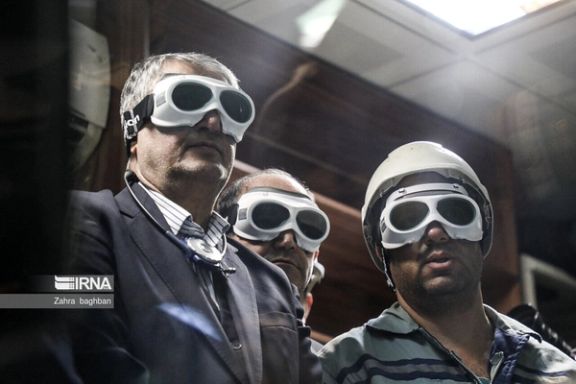
France’s ambassador to the United Nations is “extremely concerned” with Iran’s soaring uranium enrichment which he says has progressed at “dramatic rates”.
“The level of threat has increased a lot so it's time for Iran to get back to compliance and the IAEA reported on that on December 26, again, and documented the violations. So of course we are extremely concerned,” said Nicolas de Rivière in an interview with Iran International.
“We need things to go back on track and the sooner the better,” with the JCPOA nuclear agreement now collapsed. He says that the world is now at a “crossroads” as Iran violates the JCPOA nuclear agreement in “an absolutely massive manner” with enrichment at “unprecedented levels”.
The IAEA announced last week that Iran has reversed a months-long slowdown in the rate at which it is enriching uranium to up to 60% purity, close to weapons grade. While Iran already has enough uranium enriched to up to 60%, if it continues to enrich, it will have the capacity to make three nuclear bombs, and more at lower enrichment levels.
“The enrichment capacity of Iran has increased in a dramatic matter,” de Rivière said. “The so-called breakout time, which was the security deadlines provided by the JCPOA have pretty much disappeared and now Iran is pretty close to enough fissile material to assemble a nuclear device,” a situation he calls “extremely dangerous”.
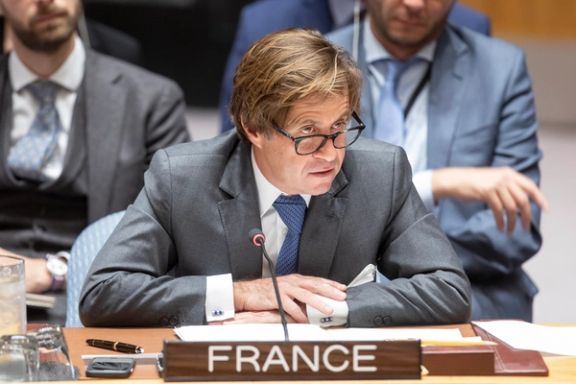
The US released a statement after the IAEA announcement which said the “findings represent a backwards step by Iran and will result in Iran tripling its monthly production rate of uranium enriched up to 60%”.
However, in keeping with the Biden administration line, the State Department said: “We remain committed to a diplomatic solution and reaffirm our determination that Iran must never develop a nuclear weapon.” Republicans believe a recent deal to free five US-Iranian hostages in return for freeing up $5bn in frozen Iranian funds has emboldened the regime.
De Rivière said the breakdown of the JCPOA and the latest revelations means “we are back to square one”. He said: “The level of the threat is extremely high and I think we should do whatever we can to convince Iran to change its course of action.”
“We should not give up with the talks. I think we should resume talks,” he said, explaining that the framework of the JCPOA itself works, but the need to resume cooperation is critical.
“We should certainly try to have another round of negotiations and see what is feasible. I think as a diplomat, you should never give up on the negotiating and trying to find a solution. So I think it's very late, but it's probably not too late.”
The E3, a coalition of the UK, France and Germany, immediately reacted to the latest IAEA news, calling it a “backwards step by Iran” which continues to deny its aims of nuclear weapons.
“The production of high-enriched uranium by Iran has no credible civilian justification and the reported production at the Fordow Fuel Enrichment Plant and the Pilot Fuel Enrichment Plant further carries significant proliferation-related risks,” the E3 said, calling the revelations “reckless behaviour in a tense regional context”.
While Iran-backed Hamas continues fighting Israel in the Gaza war, sparked by the Hamas massacre of 1,200 mostly civilians on October 7, de Rivière also spoke of the destabilizing activities of Iran’s proxies.
Its largest and most powerful proxy, Hezbollah, is also upping its attacks on Israel’s northern border, while the Yemeni Houthis have just carried out its 23rd attack on shipping in and around the Red Sea since October 19, threatening wider escalation.
The US is leading a more than 20-nation coalition to protect the maritime route, but de Rivière noted that Iran’s proxies are contributing to making the region “dangerous and unstable”.
“Whether with the Houthis or with the Iranian supported groups in Syria and Iraq, the sooner we can bring the crisis in Gaza under control the better because it will probably reduce the tensions in the whole region,” he said, France “very concerned with the risk of spillover of the crisis in Gaza in the whole region”.
France continues to warn the regime not to inflame the tensions further, de Rivière said. “We speak to the Iranians on a regular basis and this is precisely the message we put to the Iranians, don't mix up with this [Gaza] crisis.”
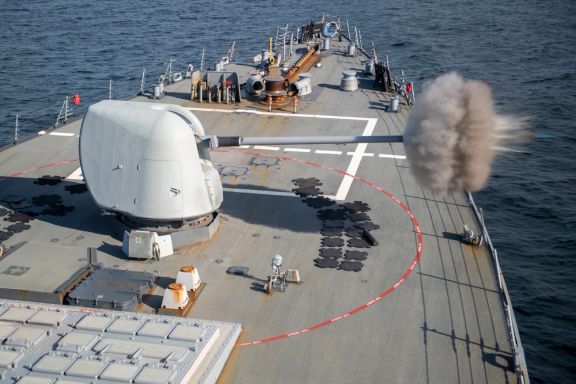
The United States Central Command (CENTCOM) reported a maritime incident in the southern Red Sea, where two missiles launched from Houthi-controlled areas in Yemen were intercepted.
The missiles posed an imminent threat to a container ship flying the Singapore flag and owned/operated by Denmark.
The targeted container ship promptly reported a missile strike, prompting a rapid and coordinated response from the USS Gravely and USS Laboon. According to CENTCOM, the USS Gravely effectively thwarted two anti-ship ballistic missiles fired by Houthi rebels. The container ship, after inspection, was declared seaworthy, and fortunately, no injuries were reported among the crew.
The Houthi rebels, an Iranian proxy which controls a significant portion of Yemen, have been actively disrupting global trade by targeting ships navigating through the Bab al-Mandab Strait at the southern end of the Red Sea. They claim the actions are retaliatory measures against Israel's retaliatory action in Gaza following the Hamas attack on Israel on October7. The recent incident marks the 23rd attack on international shipping by the Houthis since November 19, as reported by CENTCOM.
Despite ongoing international efforts to protect vessels in the Red Sea and an increased commitment to maritime missions, Vice Adm. Brad Cooper, the top commander of US naval forces in the Middle East, emphasized that the Houthi rebels show no indications of halting their "reckless" assaults on commercial ships.
In an interview with the Associated Press he said Operation Prosperity Guardian, launched just over 10 days ago, has proven successful, with more than 1,200 merchant ships safely navigating the Red Sea region without encountering drone or missile strikes.
However, US officials have accused Iran of endorsing the Houthi assaults on global shipping lanes—an allegation vehemently denied by Iran, which denies any involvement in the Red Sea incidents.
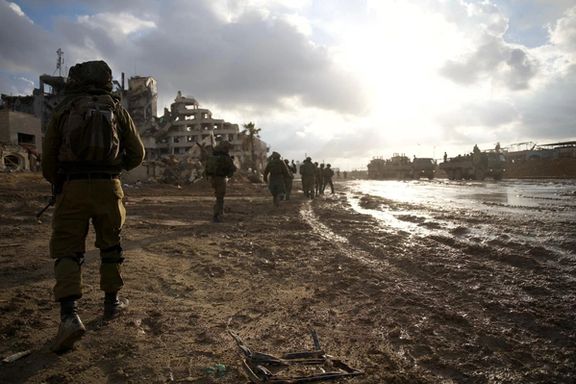
Iran’s recent decision to speed up its enrichment of uranium, and attacks by Tehran’s proxies across the region, have created deep concerns among Iranians.
Etemad Online in Tehran says tensions between Tehran and Washington have escalated following the UN nuclear watchdog, IAEA’s report about Iran’s nuclear escalation. Observers in Tehran have pointed out that the situation in the region could go dangerously out of control if there is no agreement between Tehran and Washington.
Meanwhile, according to the Wall Street Journal, Tehran's attempts to help its regional allies and proxy groups to attack Israel and US forces in the region has been a key factor in the escalation of tensions between Tehran and Washington.
Under the 2015 nuclear deal, the JCPOA, Iran’s uranium enrichment was greatly curtailed but after the United States withdrew from the accord, Tehran began to increase both the quantity and quality of its enrichment.
The boost in the production of weapons-grade uranium may also pave the way for Iran's nuclear break-away, reports say. Now, Iran has simply returned to its production level as it has been at the beginning of 2023, which means that any possible agreement between Tehran and Washington that was made since then has failed.
Meanwhile, observers in both Tehran and Washington suggest that despite these developments, Washington may still be prepared to resume the nuclear talks with Tehran although many politicians in Washington demand a tougher stance against Tehran. The resumption of the talks were initially planned for October, but the Hamas attack on Israel and the ensuing war stopped the process.
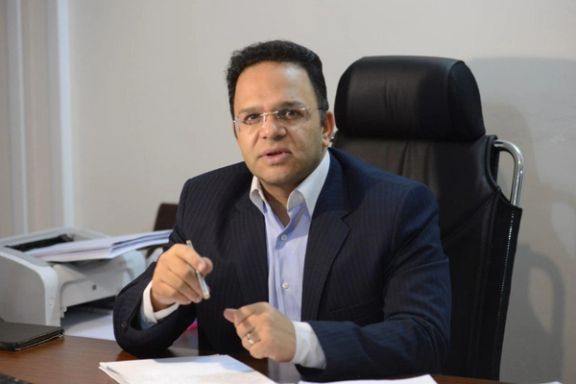
Iranian foreign policy analyst Rahman Ghahramanpour told Didban Iran website that Iran's involvement in attacks on navigation in the Red Sea is likely to lead to a confrontation in the long-run. However, even at the current level of escalation, the situation is likely to adversely affect Iran's relations with other countries such as China, Russia, and some of the regional countries that still maintain close ties with Tehran.
Ghahremanpour added that the attacks by Iran's proxies and allies on civilian shipping in the Red Sea will badly damaged its international image and foreign relations.
Meanwhile, Iran's former diplomat in New York Kourosh Ahmadi told Entekhab News website that "With no agreement between Tehran and Washington, the situation which has been under control during the past months since the start of the war in Israel, could dangerously go out of control.
Ahmadi added that it is not unlikely that Israel would plan an attack on Iran and Lebanese Hezbollah under such circumstances. However, Ahmadi quoted some unnamed Iranian officials as saying that the United States would not get involved in any new adventurism in an election year. According to Ahmadi, while such a presumption could be correct from some perspectives, it would remain true only if the opposing party could not accuse the incumbent government of weakness and indecisiveness in the face of foreign enemies. If the delicate balance were to be disrupted in such a case, the government might decide that foreign adventurism is its only way to preserve its status in the US domestic political scene.
Ahmadi also argued that events such as the recent US attack on the positions of Iranian proxy groups in Iraq could ruin the balance and the unwritten agreement between Tehran and Washington which was supposed to come out of meetings in Oman. He failed to mention that the US strikes were limited retaliation against more than 100 attacks by Iran’s proxies on US bases in Iraq and Syria.
However, Ahmadi reiterated that : "If there is no agreement between Iran and the United States, the situation that seemed to be under control during the past six months, will go out of control and a dangerous situation could take shape."
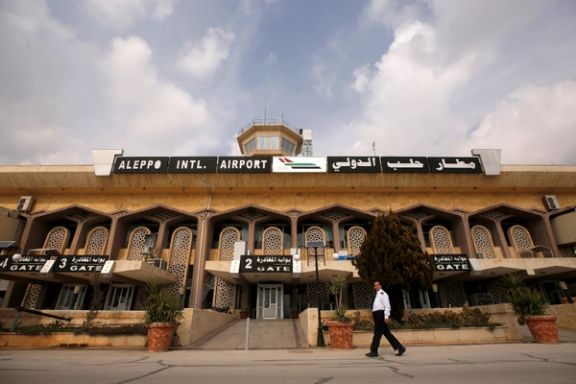
Israel targeted Syria's Aleppo with an air strike on Saturday, which caused some material damage there, the Syrian defense ministry said in a statement.
The Syrian Observatory for Human Rights (SOHR) reported that Al-Nairab Military Airport near Aleppo and targets in its vicinity were also attacked.
SOHR stated that there are warehouses and centers belonging to Iranian militias in the areas hit by missiles launched from warplanes.
The airports themselves did not sustain damage, SOHR said.
Six explosions were heard in the Nairab airport area, while one missile landed in the area of Aleppo International Airport.
Reuters reported that the Israeli military declined to comment. While Israel has launched hundreds of air strikes against Iran-affiliated forces in Syria in the past decade, it usually refuses to confirm or deny its involvement.
Most of these attacks have targeted weapons depots belonging to the Iranian military network in Syria, and arms transfers destined for Iran-backed forces, particularly the Lebanese Hezbollah. Israel has vowed not to allow more entrenchment by Iranian forces in Syria.
The latest strikes seem to be related to heightened tensions in the region amid the Israeli military operation against Hamas.
On December 25, a suspected Israeli air strike killed the top Iranian IRGC general, Razi Mousavi, at his residence near Damascus. Iran has vowed revenge for the targeted killing, similar to a US air strike that killed Iran’s Quds Force commander Qasem Soleimani in January 2020 in Baghdad.
"We are acting against Iran all the time, everywhere, and I will not go into details. Today, everyone understands that the threat from Iran will greatly increase if Iran has nuclear weapons," Benjamin Netanyahu said in his address on Saturday night.
"Therefore, the goal that I have been working toward for many years, even now, remains as is: To do absolutely everything to prevent Iran from obtaining nuclear weapons."
The IAEA announced last week that Iran has reversed a months-long slowdown in the rate at which it is enriching uranium to up to 60% purity, close to weapons grade. While Iran already has enough uranium enriched to up to 60%, if it continues to enrich, it will have the capacity to make three nuclear bombs, and more at lower enrichment levels.
Netanyahu also addressed the situation with Iran's Yemeni proxy, the Houthis, which has been targeting vessels in the Red Sea in a bid to pressure Israel to cease its retaliatory attacks on Gaza following the October 7 Hamas invasion. On the day now known as Black Sabbath, Hamas killed 1,200 mostly civilians and took at least 240 more hostage. Since Israel launched its retaliation, Hamas claims at least 21,000 Gazans have died.
Netanyahu praised the US-led international coalition formed to combat the martimite threat, the route responsible for 12 percent of global trade. "I spoke with many leaders about the need to form an international coalition to safeguard freedom of international navigation in the straits. I welcome the fact that such a coalition has been formed. In any case, we will not allow this threat to harm the citizens of Israel or the Israeli economy," he said.
Providing an update on the ongoing conflict against the Iran-backed Hamas terror group, Netanyahu acknowledged the continuation of the war on all fronts.
"We have eliminated over 8,000 terrorists, and we are eliminating many more each day of fighting. Step by step, we are wiping out Hamas's capabilities. Hamas will be defeated. Our soldiers will win. The people of Israel will win," he said, amid a war which has now spread to Israel's north with Hezbollah in Lebanon increasing its bombardments.